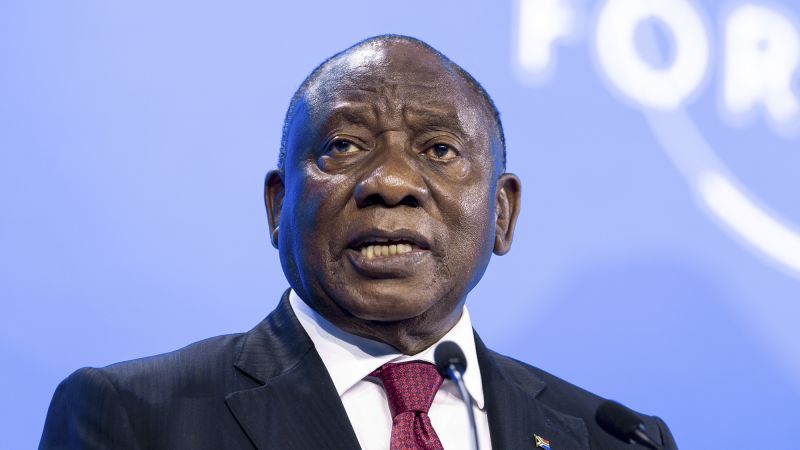South African President Cyril Ramaphosa responded on Monday to US President Donald Trump’s threat to cut off aid over the alleged mistreatment of White farmers, denying Trump’s claim that authorities were “confiscating land.”
“South Africa is a constitutional democracy that is deeply rooted in the rule of law, justice and equality. The South African government has not confiscated any land,” Ramaphosa wrote on X.
“We look forward to engaging with the Trump administration over our land reform policy and issues of bilateral interest,” he wrote. He added that, while the US was a key strategic political and trade partner, it did not provide significant funding to South Africa besides a major HIV/AIDS relief program.
His statement comes after Trump wrote on Truth Social on Sunday that he would cut off all future funding to the country until there was a full investigation into allegations that “South Africa is confiscating land, and treating certain classes of people VERY BADLY.”
Trump’s long-held complaint, which he’d also made in 2018 during his first term, goes back to the complex land reform in South Africa.
Racist policies of the past forcefully removed Black and non-White South Africans from the land for White use. There has been a land redistribution and restitution provision in the country’s constitution since South Africa emerged from its apartheid era and held its first democratic elections in 1994.
However, unemployment and poverty remain acute among Black South Africans, who make up around 80% of the population, yet own a fraction of the land.
In January, Ramaphosa signed a bill into law that sets forth new guidelines for land expropriation, including enabling the government to expropriate land without compensation in some cases.
In his X post Monday, Ramaphosa said the law was “not a confiscation instrument,” but a legal process that “ensures public access to land in an equitable and just manner as guided by the constitution.”
However, constitutional protections against expropriation without compensation still remain in place, and experts believe South Africa’s ruling party will face legal challenges if it seeks to implement the policy.






































